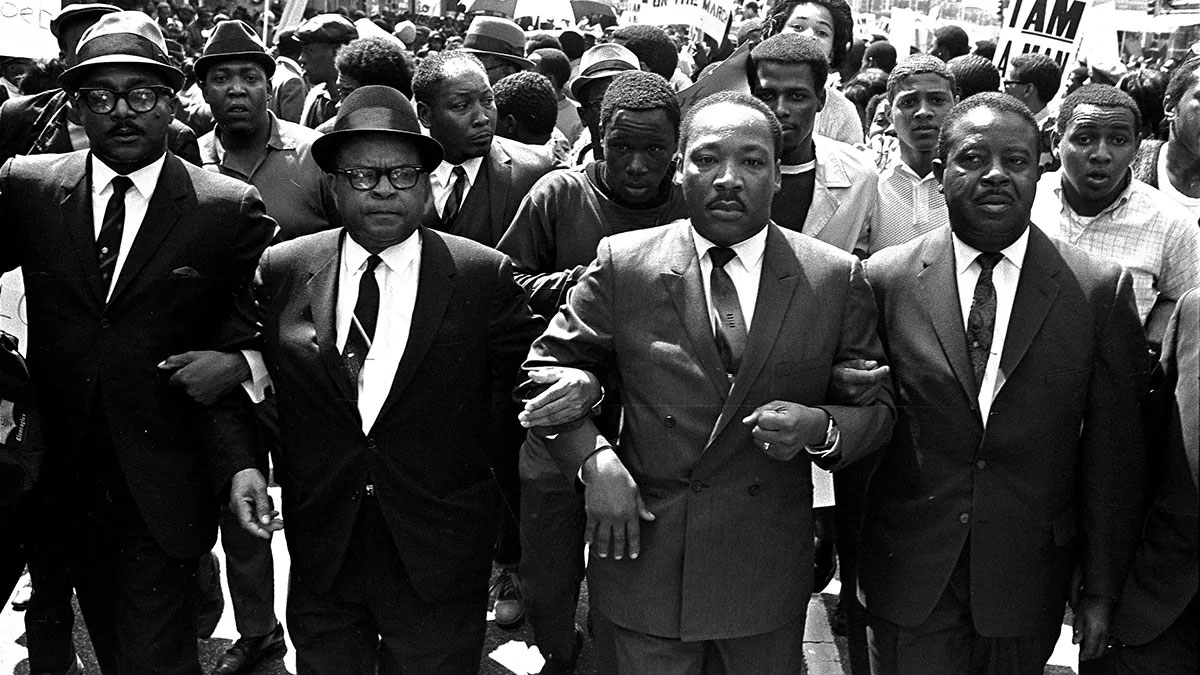
March 28, 1968

Martin Luther King Jr. made his last march. Joined by Ralph Abernathy and James Lawson, King led a march of sanitation workers in Memphis.
More than 1,300 workers had gone on strike after the deaths of two workers, Echol Cole and Robert Walker, who took shelter in the back of the truck to avoid the frigid February rain. The white driver had refused to allow the two men into the cab of the truck. Cole and Walker wound up getting crushed.
“The two men’s deaths left their wives and children destitute,” Michael K. Honey wrote in “Going Down Jericho Road.” “A funeral home held the men’s bodies until the families found a way to pay for their caskets.”
On strike, workers, who qualified for food stamps, demanded better pay and better conditions. The city refused to recognize their union and, in response, hired strikebreakers.
King spoke to them and others gathered: “You are reminding, not only Memphis, but you are reminding the nation that it is a crime for people to live in this rich nation and receive starvation wages.”
King wound up halting the march when some broke windows and looted. He halted the march and vowed to have a nonviolent protest on April 5. He didn’t live to see that day.

